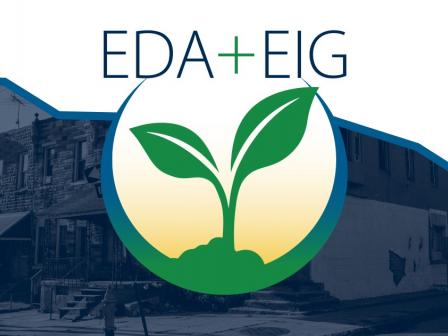
Archived Content
This site contains information that has been considered archived and will no longer be updated.
Tackling Persistent Poverty is Goal of New EDA-Economic Innovation Group Initiative
Breaking regional cycles of poverty is a challenge for both rural and urban communities throughout the United States. The structural forces that have kept persistently poor places in poverty are complex, interrelated, and together poorly understood. There is an urgent need to identify and assess the root causes of economic marginalization in these communities to create better policies to help overcome the cycles of persistent poverty.
This month, the Economic Development Administration’s (EDA) Research and National Technical Assistance program awarded a $500,093 grant to the Economic Innovation Group (EIG) to study the circumstances of, and investigate the factors that have contributed to, persistent poverty and chronic under-development in communities across the country. In this new project, “Advancing Economic Development in Persistently Poor Communities,” EIG will identify and analyze areas of persistent poverty in the United States, develop a typology of persistently poor places based on their needs to better inform future policy approaches, and assess how effective past EDA investments have been in alleviating deprivation in areas suffering from persistent poverty.
“EDA’s investment priorities include economic development planning targeting underserved communities within geographies systemically denied a full opportunity to participate in America’s economic prosperity,” explained Dennis Alvord, Acting Assistant Secretary of Commerce for Economic Development. “This partnership with the Economic Innovation Group will provide EDA a critical gap analysis between current practices and future impacts while also offering actionable insights that can be used by other federal agencies involved in economic development.”
Launched in 2015, the Washington-based Economic Innovation Group is a bipartisan public policy organization that works to address America’s most pressing economic challenges. EIG has been a national leader in bringing geographic inequality into the country’s economic policy conversations and in advancing ideas that strengthen the foundations of the U.S. economy at the community level.
“This initiative will carry our work examining geographic inequality into an exciting new and applied stage,” said John Lettieri, President and CEO of EIG. “How to craft the next generation of effective place-based policies is one of the most important policy questions facing the country right now. EIG is committed to translating insights into action and we’re excited to see how this project’s lessons will inform EDA and other federal agencies in their future programming.”
